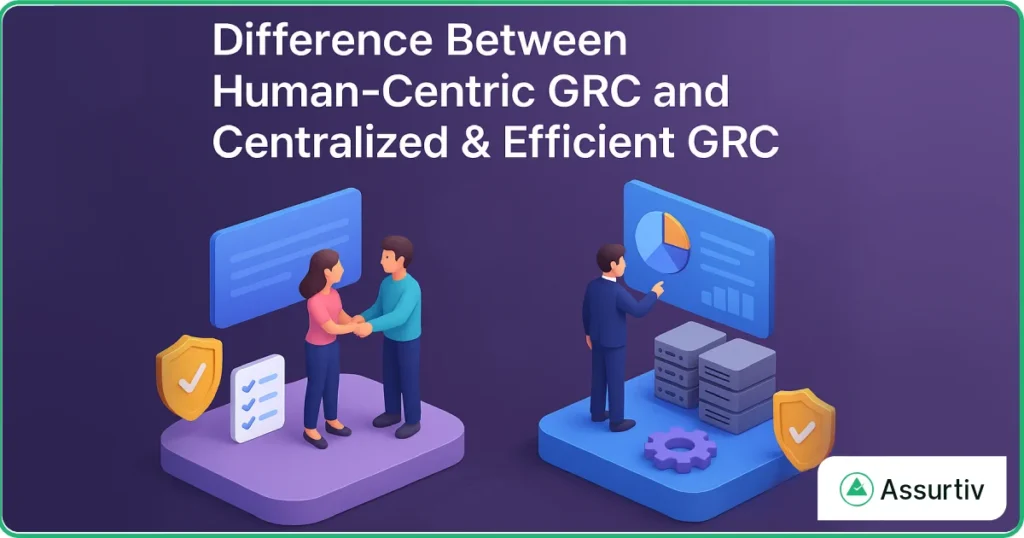California Consumer Privacy Act (CCPA)
By assurtiv | Last Updated: 27 Jan 2025
 The California Consumer Privacy Act (CCPA) is a landmark privacy law that gives California residents greater control over their personal data. As privacy concerns rise globally, CCPA serves as a model for protecting consumer rights. This guide breaks down the key aspects of CCPA, explaining its standards, policies, and controls in a straightforward way.
The California Consumer Privacy Act (CCPA) is a landmark privacy law that gives California residents greater control over their personal data. As privacy concerns rise globally, CCPA serves as a model for protecting consumer rights. This guide breaks down the key aspects of CCPA, explaining its standards, policies, and controls in a straightforward way.
What Is the CCPA?
Enacted in 2018, the CCPA aims to enhance privacy rights and consumer protection for California residents. The law grants individuals’ rights over their personal information and holds businesses accountable for handling this data responsibly.
Key Standards of the CCPA
The CCPA focuses on empowering consumers with rights to:
- Access Personal Information: Consumers can request details about the personal information a business collects about them.
- Delete Personal Information: Businesses must delete personal data upon a consumer’s request, subject to certain exceptions.
- Opt-Out of Sale: Consumers can opt out of the sale of their personal information to third parties.
- Non-Discrimination: Businesses cannot deny goods or services or charge different prices to consumers who exercise their rights under the CCPA.
Who Must Comply with CCPA?
The law applies to for-profit businesses that meet any of these thresholds:
- Gross annual revenue exceeding $25 million.
- Collects, buys, or shares the personal information of 50,000 or more consumers, households, or devices.
- It derives 50% or more of its annual revenue from selling personal information.
CCPA Policies and Controls
To ensure compliance, businesses must implement the following:
- Data Mapping: Maintain a clear inventory of the personal information collected, stored, and shared.
- Privacy Policies: Update privacy policies to include detailed disclosures about consumer rights and how personal data is handled.
- Consumer Request Mechanisms: Provide easy ways for consumers to submit data access, deletion, or opt-out requests.
- Employee Training: Train staff to handle personal data responsibly and understand CCPA requirements.
Third-Party Contracts: Establish agreements with third-party vendors to ensure they comply with CCPA regulations.
Penalties for Non-Compliance
Failure to comply with CCPA can result in fines:
- Up to $7,500 per intentional violation.
- Up to $2,500 per unintentional violation.
Additionally, consumers have the right to sue for certain data breaches, with damages ranging from $100 to $750 per incident.
How CCPA Impacts Businesses
- Increased Transparency: Businesses must provide detailed disclosures about their data practices.
- Operational Changes: Implementing systems to manage consumer requests requires time and resources.
- Financial Implications: Non-compliance can lead to significant fines and reputational damage.
Frequently Asked Questions (FAQs)
- Does CCPA only apply to California businesses? No, it applies to any business that collects data from California residents, even if the business operates outside California.
- What qualifies as personal information under CCPA? Personal information includes data that identifies, relates to, or could reasonably be linked to a specific individual, such as names, addresses, email addresses, browsing history, and geolocation data.
- What is the difference between CCPA and GDPR? While both laws focus on data privacy, GDPR (General Data Protection Regulation) applies to EU residents and includes stricter consent requirements and broader data protection principles.
Conclusion
Navigating CCPA compliance can be complex, but tools like ASSURTIV, an integrated GRC application powered by AI, make it easier. ASSURTIV simplifies data management, ensures compliance, and helps businesses stay ahead in an evolving regulatory landscape. Protect your business and consumers with confidence—choose ASSURTIV today.




